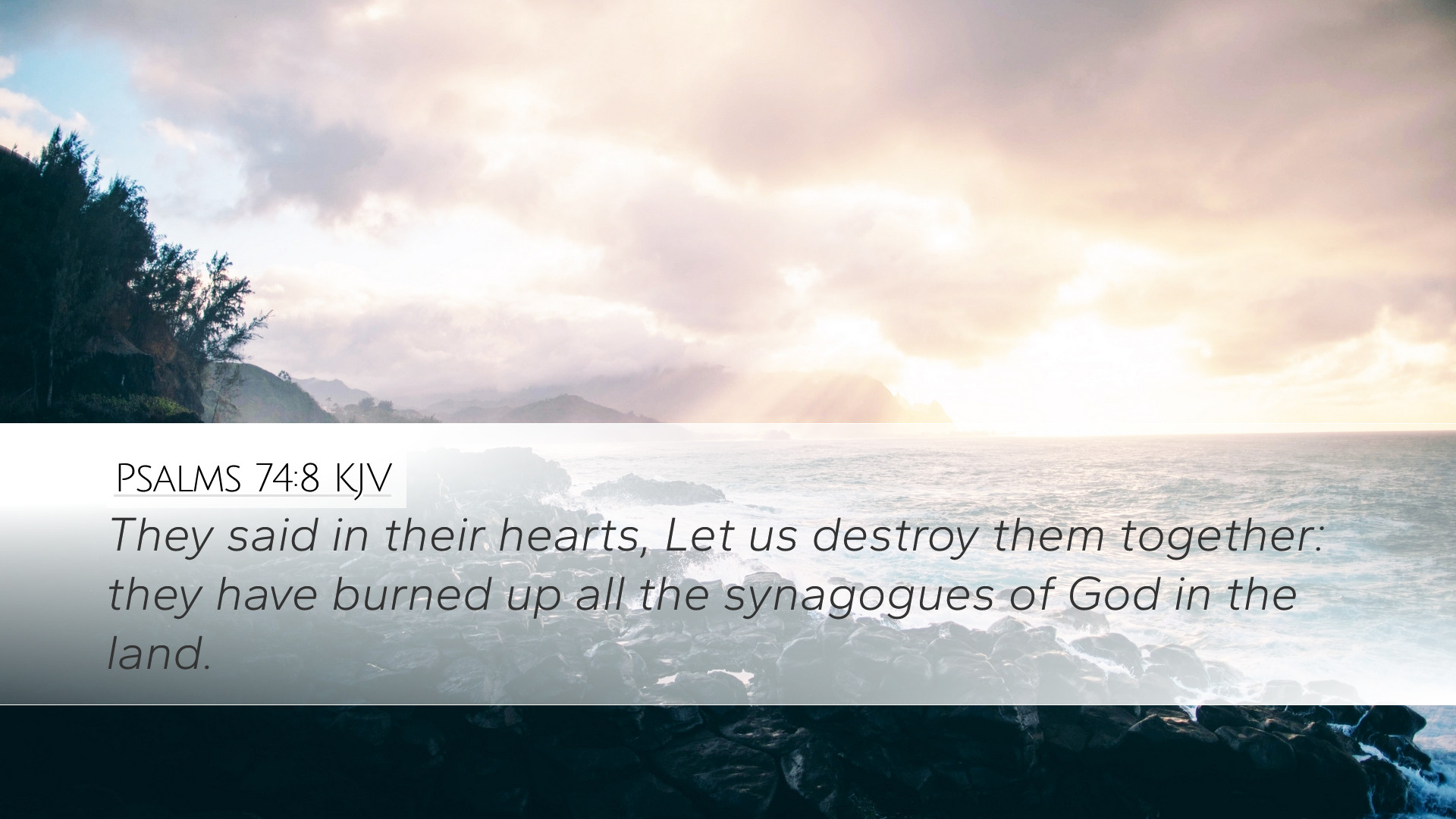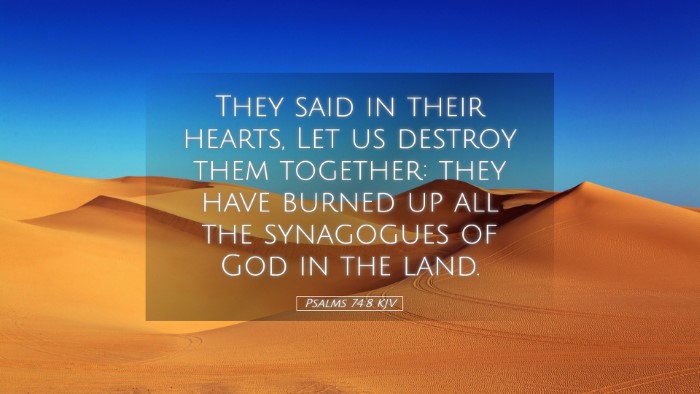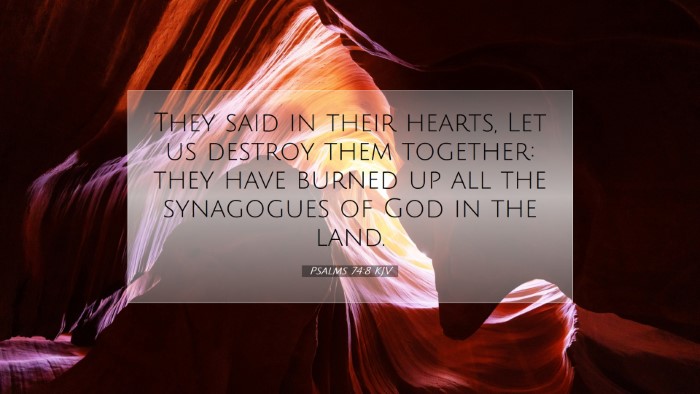Psalms 74:8 Commentary
Verse: "They said in their hearts, Let us destroy them together: they have burned up all the synagogues of God in the land."
Introduction
This verse from Psalm 74 is part of a lament attributed to the Asaphic school, expressing the anguish and despair of the people of Israel in the face of devastation. It reflects a crucial moment where the psalmist grapples with the destruction of sacred space and the perceived abandonment of God’s people.
Contextual Analysis
To properly understand Psalm 74:8, we must consider the historical and theological context of the passage. Traditionally, this Psalm is associated with the Babylonian exile, a time when the Jews experienced profound loss, not only in terms of their homeland but also in their worship practices and communal identity.
- Historical Background: The Babylonian invasion led to the destruction of Jerusalem and the Temple, symbolizing God's presence among His people. The act of burning the synagogues reflects a deliberate attempt to erase Israel’s cultural and religious identity.
- Theological Significance: The verse captures a palpable sense of crisis. The inhabitant's cries serve to highlight their belief in the importance of divine worship and the enormity of the loss when places of worship are destroyed.
- Emotional Tone: There is a profound sorrow and urgency in the language used, indicating not just a physical destruction, but a spiritual desolation that threatens the very essence of the community’s faith.
Insights from Commentaries
Matthew Henry
Matthew Henry elucidates the communal aspect of the lament, emphasizing that the destruction of synagogues signifies a collective loss. He notes that the invaders did not merely want to conquer but sought to obliterate the spiritual heritage of Israel. The phrase "let us destroy them together" hints at a conspiratorial alliance against the faith and practices of God's people, which points to the resilience of communal memory and identity despite external threats.
Albert Barnes
Barnes highlights the psychological warfare involved in the destruction of sacred sites. He suggests that the act of burning synagogues was both a physical and a symbolic act that aimed to demoralize the Israelites. The unity expressed in "let us destroy them together" underscores a coordinated effort by enemies to combat the Israelites' faith. Barnes posits that the Psalmist pleads to God to act against these adversaries, framing their actions within the context of divine justice.
Adam Clarke
Clarke focuses on the implications of the destruction of synagogues for Jewish worship and identity. He points out that synagogues served as places not just for communal worship, but also for teaching and preserving the Law. Their destruction would represent an existential threat to the continuity of Israel's religious traditions. Clarke also notes that the enemies' declaration serves as an insight into their understanding of the power dynamics at play—aiming to not only physically destroy but also spiritually dismantle the Israelite community's identity.
Theological Implications
The lament in Psalm 74:8 raises vital theological questions about God's presence and silence in times of crisis. The destruction of places of worship prompts reflections on human agency, divine sovereignty, and communal responsibility.
- The Problem of Evil: The congregational destruction challenges believers to reconcile the existence of evil with the goodness of God. Why does God permit such destruction? This question remains central to faith, particularly in exilic contexts.
- Divine Abandonment: The seeming absence of God in the face of destruction leads to a crisis of faith for many. The psalmist's outcry reflects a deep yearning for God's intervention and highlights the human experience of divine silence.
- Resilience of Faith: Despite devastation, the psalm serves as a reminder of the enduring nature of community and worship. Even in desolation, the faithful often rise to preserve their identity and traditions.
Conclusion
Psalm 74:8 encapsulates the deep sorrow and communal anguish experienced by the people of Israel during a time of unprecedented crisis. Through the insights of historical and theological commentaries by Matthew Henry, Albert Barnes, and Adam Clarke, we gain a multifaceted understanding of the implications of this verse. It serves to remind us of the importance of sacred spaces, the collective identity forged through shared worship, and the enduring hope that can arise amidst profound loss.
May this exploration of Psalm 74:8 inspire pastors, students, and scholars alike to engage deeply with the Scriptures, finding in them the voice of lament as well as the promise of restoration.


